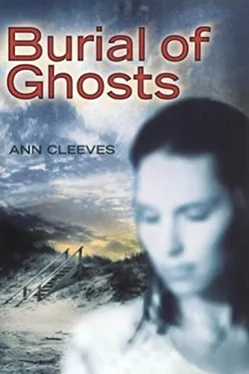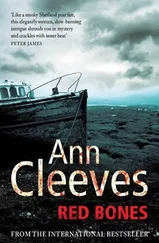This was a test of her competence, a sort of challenge. ‘I haven’t heard of the borough becoming involved. County Durham is, of course. I’ve read about the problems there. Let me ask around and phone you back.’
She did. Almost immediately. She was like that. Conscientious, the sort of student who always got her essays in on time. Mine usually were given higher marks, though, and that’s why she didn’t like me. She told me smugly that it was as she’d thought. No formal resettlement programme in our area, no one specifically responsible for immigrants. ‘Sorry not to be more help,’ she said as she replaced the receiver, not sounding at all as if she meant it.
Of course, that didn’t mean the sad-eyed girls weren’t legitimate residents of Absalom House. They could have been students. They could have been born here. But I was starting to weave a fantasy in which they had starring roles, and I was already so committed to it that the social worker’s reply was pleasing.
I’d put together a story in my head, lying sleepless in Sea View watching the beams from the light buoys bounce off the ceiling. This is how it went: Harry Pool was smuggling people into the country. That’s why his attitude towards me had changed when I’d asked him about bringing in asylum seekers. That’s why he wasn’t putting more effort into defending Michael Spicer. He wanted the issue to go away. His trucks went to Eastern Europe, didn’t they? A trade in illegals would explain his affluence, the big house in Culler-coats, the flash car. Smugglers made a fortune. The papers I’d read on the subject all said that. And once the people were here perhaps Ellen helped them, the younger ones at least. As Dan had said, she’d not ask any awkward questions or check papers too carefully. She wouldn’t want them ending up on the streets and dying like her son. Perhaps she was so eager to see me, that day in Cullercoats, not to give me information, but to find out how much I knew.
And perhaps Thomas had found out about it. He was in a better position than anyone to put together what was going on. He worked in the office at the yard. Even if Harry had tried to keep him out of it, there could be overheard conversations, mysterious phone messages. Nobody had ever said that Thomas was dumb. He’d work it out. Maybe he’d even seen the lorries come back and watched them unload. I ran it in my head, saw it like one of those cheesy cop shows they have on the telly on a Sunday night, all shadowy lighting and eerie electronic music. I pictured Thomas hiding behind a stack of containers, watching the dark figures climb over the tailboard of the truck. And he was living at Absalom House, so when the immigrants turned up there he’d not be taken in by whatever cover story Ellen and Harry had hatched up for them.
You can’t blame me for getting excited, for being seduced by the theory. I mean, it was beautiful. Everything slotted right into place, even Marcus’s idea that Thomas saw himself with a new future at work. Perhaps Harry had offered to cut him in on the deal. Perhaps Thomas had tried blackmail. OK, it didn’t explain Marcus’s sudden death, but perhaps that was an accident after all.
The only problem was, I couldn’t see Harry or Ellen stabbing him. I mean, Ellen, come on! There might be something scary about her appearance. That dyed hair and scarlet lipstick always made me think of vampires. But she was a sweetie. She was genuinely fond of the kids in her care. She couldn’t knife anyone to save her life, especially a lad who’d reminded her of her son. And I’d seen Harry playing with his grandchildren. Perhaps I’m a sentimental fool, but he didn’t strike me as a violent man. That afternoon when we’d all been in the pub after the funeral threw me too. Could he possibly have gone through that charade if he’d been the cause of it? I didn’t think so.
My first instinct was to go to Farrier and share my theory. The thought gave me the same feeling as when I was about to hand in an essay to my tutor at college. Please like it. Please approve. Of my ideas and me. Then I thought that was pathetic, and I needed something more concrete to give him anyway. At the back of my mind was the fear that, as he’d warned me off meddling, he’d be cross. He’d only be pleased if I had a really solid piece of information to hand to him, not a wild accusation against two respectable people. Otherwise, like all the other cops, he might think I was crazy.
I decided on a trip to Absalom House. It might be possible to speak to the foreign girls without bumping into Ellen or Dan. And in Sea View I was restless. I couldn’t settle to anything. My prowling around the house was starting to worry Jess and she’d begun muttering about it having been a long time since Lisa had been round, and maybe I should ask her in for coffee.
She stopped me on my way out. I thought she was going to ask an unsubtle question about when I was due to see the psychiatrist next, but all she said was, ‘Are you doing anything next Friday night?’ It slipped out really casually and I was preoccupied, or I’d have taken more care in the answer.
‘I don’t think so.’ I was fishing through my bag for my car keys.
‘Oh, that’s good. There’s a ceilidh. Some friends of Ray’s are getting engaged. You’re invited too. It’ll be a chance for you to get to know them all.’
And she beamed, delighted, so how could I refuse?
I arrived at Absalom House late in the morning and it was quiet, as I’d hoped. Dan had told me that most of the residents were expected to take on work or training. ‘It’s not just a doss house,’ he’d said, giving me the party line. But surely the sisters wouldn’t be at work or college. Not yet. Not if they were hiding from the authorities. I tried the front door, but it was locked. The windows at the front of the house were covered by net curtains and I couldn’t see in without going right up to the glass. It was a busy street, a sunny day, and I didn’t want to draw attention to myself.
Absalom House formed a block in the middle of a terrace and there was no access to the back from the street. I had to walk round the end of the terrace to a narrow lane, just wide enough for a car to pass through, which gave access to gardens and ramshackle garages. I made my way along it, trying to look as if I belonged, past a shed full of pigeons and a fierce dog on a long chain. I knew when I’d reached Absalom House because of the glass lean-to built onto the kitchen. There were double wrought-iron gates leading onto tarmac. No cars. Then a patch of overgrown garden. I let myself in and listened. No sound except for the barking of the dog, still furious because I’d walked past its territory.
The door into the lean-to was unlocked. It was in full sunshine and inside it was steamy, smelling of vegetation and compost. There were Gro-bags of tomatoes on the window-sill, on the floor pots with the sort of tropical plants you get in conservatories, a couple of white wicker chairs and a table. It would be a pleasant place to sit in the winter but now it was unbearably hot. I could see into one end of the L-shaped kitchen. It was much cleaner than when I’d sat there drinking tea with Dan. Suddenly a large woman in a long white apron came into view. She was vigorously wiping down surfaces with a cloth. I felt the shot of adrenaline, as if I’d drunk five espressos in one gulp, and tried to breathe deeply to relax myself out of the panic. What if I were caught? I had an imagination, didn’t I? Surely I could come up with a story for Ellen and Dan. I couldn’t quite think of a plausible one now, but something would come to me. The woman wrung out the dishcloth and hung it over a tap, then untied her apron, rolled it into a ball and stuck it into her bag. I was still shaking, convinced that she’d use the back way out into the lane, even when she disappeared from view again. I gave her five minutes, then went to the door so I could see the whole of the kitchen. She’d gone.
Читать дальше












